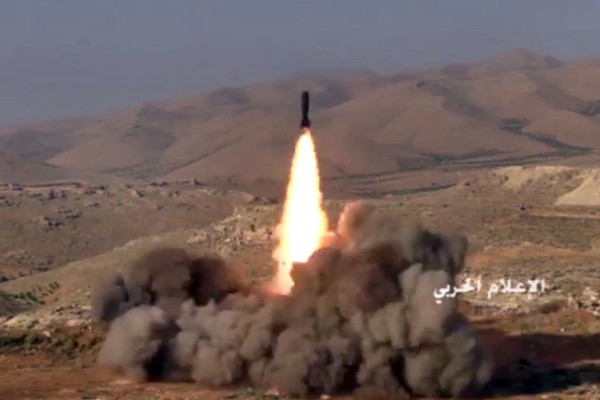Iran urged Hezbollah to step up attacks only after ‘it had become certain of Israel’s intention’ to operate in Rafah.
By Vered Weiss, World Israel News
The escalation of missiles in the north of Israel is reportedly happening because Iran is encouraging Hezbollah to attack Israel.
Iran is concerned that after Israel’s intended operation in Rafah to destroy the remaining Hamas battalions, it will then attack Lebanon, according to a report from an Iranian source.
An Iranian source told the Arabic Post that Iran urged Hezbollah to step up attacks only after “it had become certain of Israel’s intention” to operate in Rafah, which would be interpreted to mean that Lebanon “will be next.”
In addition, the source also said that Esmail Qaani, Islamic Revolutionary Guards Corp (IRGC) Quds Force leader was meeting with Hezbollah head Hassan Nasrallah to discuss “the latest developments” on the border between Israel and Lebanon.
Nasrallah initiated the meeting which he considered as a “necessity” after “information was obtained” that Israel was allegedly planning to launch a major assault in Lebanon.
Nasrallah said he believed the attack would occur during Ramadan or would coincide with Israel’s operation in Rafah.
The Iranian source said “Nasrallah said that he is completely certain of [Israel’s] intention to launch a large-scale attack on Lebanon, and he asked Qaani to give him complete freedom in how he intends to attack.”
The sourced added that Iran was unhappy with Hezbollah’s decision to send missiles against Safed, with one rocket hitting the Ziv Medical Center.
Dr. Salman Zarka wrote following the attack, “We are very lucky here. The missile did not explode.”
However, in the attacks, one IDF soldier, Staff.-Sgt. Omer Sarah Benjo, was killed and 10 others were wounded.
The source said the attack in Safed “angered Tehran to some extent.”
According to the Arabic Post the attack contradicted the “policy of strategic patience in the face of Israeli and American provocations.”





